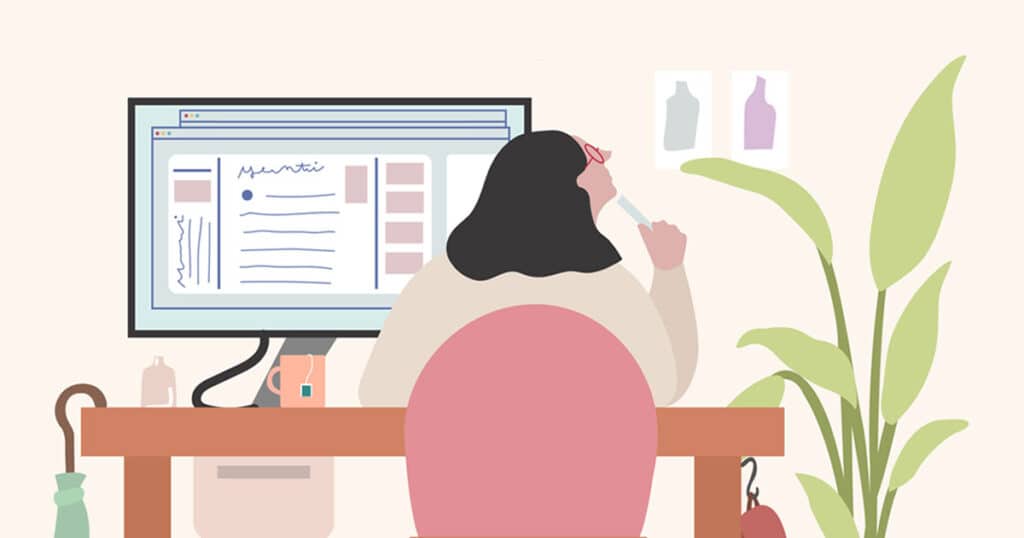Sometimes the Most Honest Conversation You Need to Have Is With Yourself

Photo credit: iStockphoto.com (Ada daSilva)
Celeste Headlee is an American radio journalist, author, public speaker, co-host of the weekly series Retro Report on PBS – and host of the Conference for Women’s podcast, Women Amplified. This month, she allowed us to turn the tables and interview her about her specialty: effective communication.
Q: What made you become a professional communicator?
I’m a trained opera singer, and every musician needs a day job. They just happen to be similar jobs. In both cases, you are communicating with an audience, trying to reach deeper emotionally or intellectually, using the power of voice alone. I was surprisingly very good at broadcast journalism, something I would never have predicted. It made me drill down on the core of the job: communication.
Q: What are some of the things obvious about being an effective communicator that you think many of us miss?
Human beings are better at communication than pretty much everybody else. We have survived for 300,000 years not by the force of our intelligence but because we are such good communicators and collaborators.
That said, most people are not as good at communicating as they think. To be a good communicator or conversationalist, you must listen and talk. Talking comes naturally to humans. But listening is the hard part. It requires cognition and focus, and it burns energy.
It’s important to remember listening is a skill, not a talent. You are not born a good listener or not a good listener. You can learn it, but it has to be practiced, exercised and used regularly to improve. For example, you can’t have a two-hour conversation with a friend and put time into listening to them talk and think, ‘I’m a great listener,’ and then go to work and hear ten seconds of what a coworker says before jumping in.
Q: We know society has grown increasingly polarized in recent years. But in what ways do you think communication has improved — and in what ways has it worsened — in the workplace?
There are a lot more honest conversations happening around well-being. Therefore we are more open to discussing personal things than in earlier generations. That’s good.
Also, it’s great that people can say things like, ‘I’m feeling burned out and need time alone.’ I think it’s also great that we’re beginning to understand cognitive diversity and that different brains work differently. That’s excellent for communication.
As for the downside: There’s a lot here. Number one, a conversation is an extraordinarily demanding exercise. If it is an authentic conversation, it generally takes place on the phone or in person. And it will give more benefits than it costs. But there is a high cost. It is challenging to do while distracted. Trying to converse while looking at your phone – even if it is in your peripheral vision – is incredibly difficult.
Millennials and Gen Zs are the generations most likely to believe that texting and Slacking are the same as conversation, and it is not by any measure. A conversation is much more effective. Have you ever called a friend or loved one, and they say ‘Hello,’ and you say, ‘What’s wrong?’ That’s how quickly conversation works. You can’t recreate the sound of breath, voice, and so on in the written text.
Q: As host of Women Amplified, you’ve spoken with dozens of women leaders and experts about women in the workplace. What are some of the standout pieces of advice you’ve heard about effective communication?
One that stands out for me is Elizabeth Gilbert. She is honest about who she is and where she is at any moment. She takes her pulse on her feelings and doesn’t sugarcoat it because she thinks she should feel differently. That is so powerful as opposed to trying to pretend. We can learn from this by saying something like ‘I am struggling to pay attention right now’ if you are – and saying it without shame.
Another incredible conversation was with Jesmyn Ward. When she talks about her history, you hear her honesty and ability to embrace her love for a place and people, even when complicated or imperfect. She also has a lot to say about voice: learning to find your special voice and embrace and lean into it.
Q: You’ve also spoken to people in the Conferences for Women community about their questions and challenges. What’s your perception of some of the top challenges working women face now around communication, and how do you suggest they address them?
A: One of the most common questions is about transitioning to a new career stage. Some want to move into management, and no one sees them as management material. Some want to move out of their current field into another but have yet to gain experience. We also get a lot of questions about dealing with difficult bosses – bosses who are obstacles to career progression. Also, we get a lot that revolves around discrimination in some way or another.
Without repeating experts’ advice: If you make certain boundaries, you must be honest about times you’ve drawn a line in the sand someone violated, and you stayed anyway. That fear often keeps us from making moves to protect ourselves. We are afraid to hurt ourselves, so we don’t protect ourselves. In the end, it all comes down to communication.
Q: From your decades of focus on effective communication skills, what advice do you want to leave our community with?
The best advice I’ve ever heard or gotten is that doubts are healthy. When you question yourself, it doesn’t mean you have imposter syndrome. Sometimes it means you are doing a very smart thing by giving things the consideration they deserve. If we all questioned ourselves, we would be in a better situation. So, worry less about imposter syndrome and let yourself lean into those doubts.

CELESTE HEADLEE is an American radio journalist, author, public speaker, co-host of the weekly series Retro Report on PBS, and host of the Conference for Women’s podcast, Women Amplified. Her latest book is It Starts with Self-Compassion.